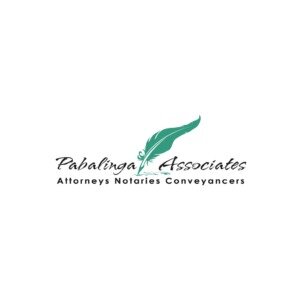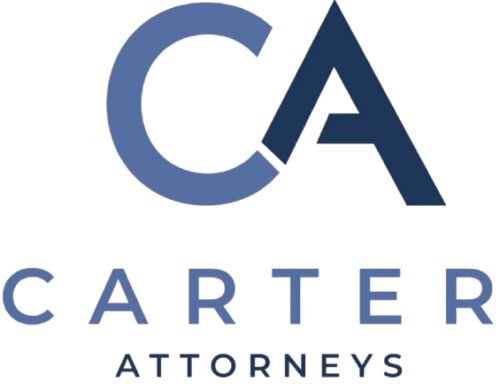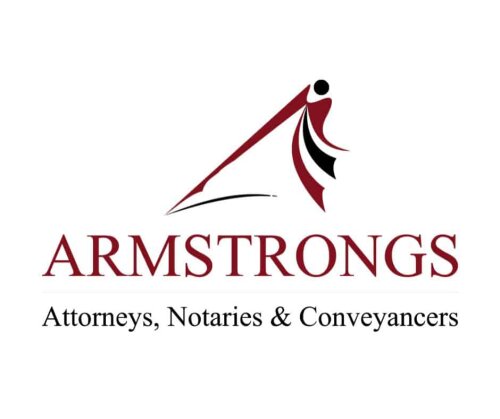Best Business Lawyers in Botswana
Share your needs with us, get contacted by law firms.
Free. Takes 2 min.
Or refine your search by selecting a city:
List of the best lawyers in Botswana
About Business Law in Botswana
Business law in Botswana is governed by a combination of statutory laws and customary practices. The legal system is based on Roman-Dutch law and is influenced by Common Law, which is not uncommon in many Southern African countries. The Botswana Business community thrives on industries such as mining, agriculture, finance, and services, and is supported by a stable political and economic environment. To navigate this landscape, companies typically require guidance on compliance, contracts, and local market regulations.
Why You May Need a Lawyer
There are numerous situations in business where legal advice may be required. Here are some common scenarios:
- Setting up a new company and understanding licensing requirements
- Drafting or reviewing business contracts and agreements
- Resolving disputes with partners, customers, or suppliers
- Ensuring compliance with local tax laws and regulations
- Negotiating mergers, acquisitions, or joint ventures
- Protecting intellectual property rights
- Navigating employment laws and labor disputes
- Handling bankruptcy or business dissolution
Local Laws Overview
In Botswana, some key legal frameworks pertinent to business include the Companies Act, Competition Act, Intellectual Property Act, and Employment Act. The Companies Act (Cap 42:01) governs the formation, operation, and dissolution of companies. The Competition Act aims to promote fair competition and curb anti-competitive practices. The Intellectual Property Act protects trademarks, patents, and copyrights, while the Employment Act addresses employee rights and employer obligations.
Frequently Asked Questions
What is required to establish a company in Botswana?
To form a company in Botswana, you need to register it with the Registrar of Companies, have at least two directors, and secure a trading license for certain types of businesses. Additional permits might be necessary depending on the nature of the business.
Do I need to be a citizen to start a business in Botswana?
No, non-citizens can also start a business in Botswana, but they may need to obtain a residence permit and meet specific capital investment requirements.
What types of business structures are available in Botswana?
The most common business structures include private limited companies, public limited companies, partnerships, and sole proprietorships. Each has its own legal implications and formation requirements.
How does the tax system work for businesses?
Botswana has a corporate tax rate that varies depending on whether the company is resident or non-resident. Businesses must register for Value-Added Tax (VAT) if their annual turnover exceeds a specified threshold.
What are the common employment practices and labor laws?
The Employment Act outlines the minimum wage, work hours, contract stipulations, and procedures for addressing labor disputes. Regular updates and amendments ensure alignment with international standards.
Are there special incentives for foreign investors?
Yes, Botswana offers various incentives to attract foreign investment, including tax breaks, duty-free import of certain goods, and support through the Botswana Investment and Trade Centre.
What steps are involved in dealing with business disputes?
Business disputes can be resolved through negotiation, mediation, arbitration, or if necessary, by going to court. Engaging a local legal practitioner can provide guidance in this process.
Is it necessary to register intellectual property rights?
While not mandatory, registering intellectual property can provide legal protection against infringement. The Companies and Intellectual Property Authority (CIPA) handles registrations.
How can I protect my business in an unstable economic climate?
Implementing risk management strategies, diversifying investments, and seeking legal advice for contingency planning can help manage economic uncertainties.
What regulatory bodies oversee business operations?
Key regulatory bodies include the Ministry of Trade and Industry, Competition Authority, and Companies and Intellectual Property Authority (CIPA), which ensure compliance with laws and standards.
Additional Resources
For more comprehensive information, consider the following resources:
- Companies and Intellectual Property Authority (CIPA) for company registration and IP management
- Botswana Investment and Trade Centre for investment opportunities and incentives
- Ministry of Trade and Industry for guidelines on trade regulations and business policies
- Botswana Chamber of Commerce, Industry, and Manpower for networking and support services
Next Steps
If you require legal assistance, the following steps may be helpful:
- Identify the specific legal issue or query you have regarding your business
- Research and select a reputable law firm or professional legal consultant with expertise in business law
- Prepare relevant documentation and information to enable efficient consultations
- Schedule a meeting to discuss your needs and explore possible solutions
- Ensure you understand the fee structure and establish clear communication with your legal advisor
Lawzana helps you find the best lawyers and law firms in Botswana through a curated and pre-screened list of qualified legal professionals. Our platform offers rankings and detailed profiles of attorneys and law firms, allowing you to compare based on practice areas, including Business, experience, and client feedback.
Each profile includes a description of the firm's areas of practice, client reviews, team members and partners, year of establishment, spoken languages, office locations, contact information, social media presence, and any published articles or resources. Most firms on our platform speak English and are experienced in both local and international legal matters.
Get a quote from top-rated law firms in Botswana — quickly, securely, and without unnecessary hassle.
Disclaimer:
The information provided on this page is for general informational purposes only and does not constitute legal advice. While we strive to ensure the accuracy and relevance of the content, legal information may change over time, and interpretations of the law can vary. You should always consult with a qualified legal professional for advice specific to your situation.
We disclaim all liability for actions taken or not taken based on the content of this page. If you believe any information is incorrect or outdated, please contact us, and we will review and update it where appropriate.
Browse business law firms by service in Botswana
Botswana Attorneys in related practice areas.
Browse business law firms by city in Botswana
Refine your search by selecting a city.
















